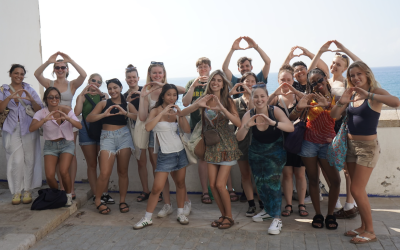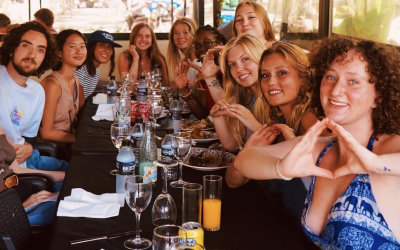(The application closed early due to a lack of available spaces.)
Come to Barcelona, a metropolis known for its beauty, architecture and music, and explore some of the most important questions of the human experience. This program offers two upper-division psychology courses, which are taught in English and emphasize Spanish culture.
In addition to the academic component of the program, you will hear from guest speakers, partake in excursions and activities that will focus on the rich and unique culture of Barcelona and Catalonia.
Site Visits & Cultural Activities
Two full-day field excursions in the Catalonia region: Visits to Montserrat and Sitges
Two local academic visits related to the partner course content, with sites and entrances determined by the faculty
Two local cultural visits: Examples include Palau de la Música Catalana, La Sagrada Família, and Parc Güell
Two cultural and experiential group activities:
Spanish cooking class featuring sangria and tapas
Wine tasting at the ACM-IAU Center




